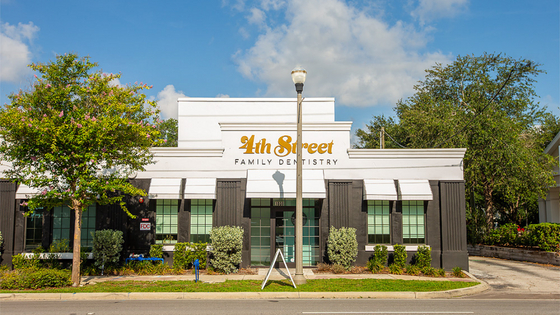Why Are My Teeth Sensitive?
Have you ever felt pain or discomfort after eating a scoop of hot soup or a piece of ice cream? If that’s the case, you’re not alone. While discomfort from hot or cold meals may indicate a cavity, it’s also typical in individuals who have sensitive teeth, states Brian Leeson, dentist in St. Petersburg. Tooth sensitivity, also known as “dentin hypersensitivity,” is a condition in which the teeth experience pain or discomfort in reaction to particular stimuli, such as hot or cold temperatures. This may leave you wondering, “Why are my teeth sensitive?”
Reasons for Tooth Sensitivity
It may be a momentary or long-term issue, and it can affect one tooth, several teeth, or all of a person’s teeth. Various factors may cause it, but most instances of sensitive teeth can be resolved with a simple modification in your dental hygiene routine as instructed by dentist in St. Pete.
Symptoms
As a result of specific triggers, people with sensitive teeth may suffer pain or discomfort. This discomfort may be felt at the roots of the impacted teeth. The following are some of the most prevalent triggers:
- Meals and drinks that are heated
- Drinks and meals that are cold
- Acidic foods and beverages chilly air sweet foods and drinks
- Alcohol-based mouth rinses after brushing or flossing teeth
Your symptoms may come and go for no apparent cause over time. They might vary in severity from minor to severe. If they become unbearable it is important to give your emergency dentist St. Pete a call.
Causes
Because their enamel is thinner, some individuals have more sensitive teeth than others. The enamel is the protective outer covering of the tooth. The enamel of a tooth may be worn away in several ways, including:
- Toothbrushing too vigorously
- Eating or drinking acidic foods
A variety of factors may cause tooth sensitivity. Acid reflux, such as gastroesophageal reflux disease (GERD), may cause acid to rise from the stomach and esophagus, wearing down teeth over time. In addition, the acid may wear away the enamel in conditions like gastroparesis and bulimia, which induce recurrent vomiting.
Gum recession may expose unprotected parts of the tooth, resulting in insensitivity.
Tooth decay, fractured teeth, chipped teeth, and worn-down fillings or crowns may expose the tooth’s dentin, resulting in insensitivity. If this is the case, you will most likely just have sensitivity in one tooth or area of the mouth rather than the whole mouth.
Following dental procedures such as fillings, crowns, or teeth whitening, your teeth may be momentarily sensitive. Sensitivity will be limited to one tooth or the teeth around the tooth that got dental treatment in this situation. This should go away in a few days.
Diagnosis
Make an appointment with 4th Street Family Dentistry if you are experiencing tooth sensitivity for the first time. Using our Healthline FindCare service, you may schedule an appointment with a dentist in your region. They may examine the condition of your teeth and search for issues such as cavities, loose fillings, or receding gums that might be causing the discomfort.
This is something your dentist can accomplish during a basic dental cleaning. First, they’ll clean your teeth and examine them visually. They may use dental equipment to feel your teeth for sensitivity, and they may also order an X-ray to rule out reasons such as cavities.
Treatment
You may attempt over-the-counter dental remedies if your tooth sensitivity is minor.
Select toothpaste that is particularly formulated for sensitive teeth. This toothpaste will not have any irritating components and may contain desensitizing compounds that prevent pain from reaching the tooth’s nerve.
Alcohol-free mouthwash is preferable since it is less irritating to sensitive teeth when it comes mouthwash.
Brushing softly and with softer toothbrushes might also help. Soft toothbrushes will be marked.
These cures usually need multiple applications to be practical. But, within a week, you should see a difference.
If non-prescription toothpaste and mouthwash don’t work, speak to your dentist about prescription toothpaste and mouthwash. In-office fluoride gel or prescription-grade desensitizing medications may also be used. These may assist in safeguarding your teeth by strengthening the enamel.
Treating Medical Conditions
Our friend Dr. Ben Kacos, Shreveport dentist, states that if underlying issues are causing your tooth sensitivity, you should address them before the enamel wears away and the teeth become damaged.
Brushing more gently and maintaining proper dental hygiene might help heal receding gums. In addition, your dentist may propose a gum transplant in situations of extreme sensitivity and pain caused by significant gum recession. This technique involves removing tissue from the palate and putting it over the tooth’s root to protect it.
By being conscious of not clenching or grinding your teeth throughout the day, you may learn to cease doing so. Reduced stress and caffeine use before bedtime may also help you avoid nighttime teeth grinding. If this doesn’t work, you may wear a mouthguard at night to protect your teeth from grinding.
Will It Go Away?
Talk to your dentist about a remedy if your tooth sensitivity is making it difficult to eat. Over-the-counter toothpaste and mouthwashes for sensitive teeth are widely available.
Consult your dentist about prescription toothpaste and mouthwash if they don’t work. If you have signs of cavities or possible root damage, you should schedule an appointment with your dentist right away so that you may obtain treatment and avoid consequences. These signs and symptoms might include:
- A toothache out of nowhere
- Pain when biting or chewing
If any of these symptoms occur be sure to contact our office as soon as possible.





